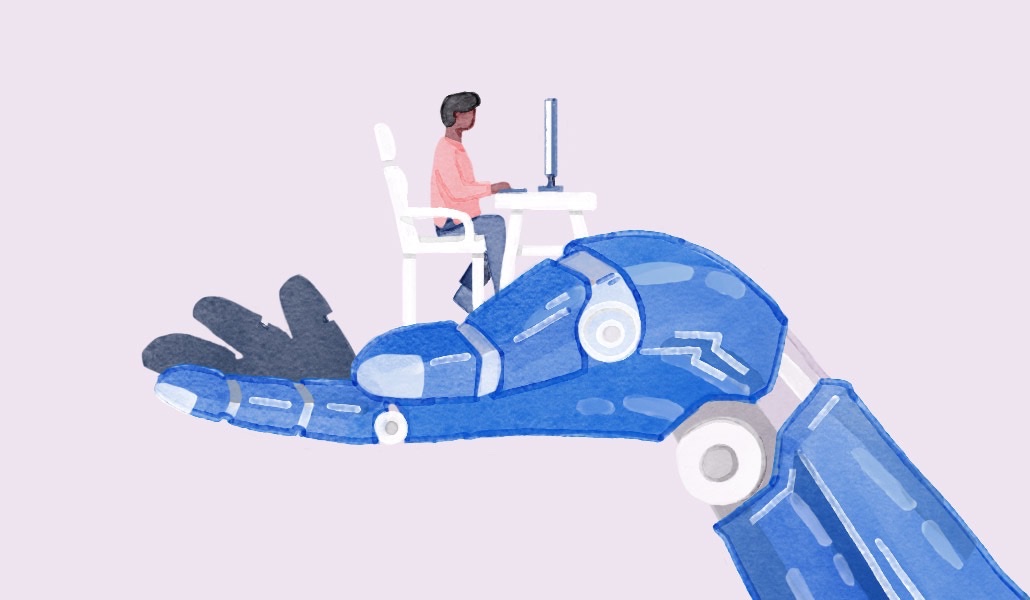How learning AI tools like ChatGPT can help you stand out at work

A job in search engine optimization (SEO) is one that we are now all familiar with. Knowing what keywords to include in any online content, so it shows up on Google is core for most careers in the digital age. It’s all about how you word things. And in time, AI tools like ChatGPT may be just as ubiquitous as SEO.
Knowing exactly how to prompt OpenAI’s ChatGPT shouldn’t be underestimated as a core skill in the future of work. It may even be a job differentiator.
For example, asking the bot to write a LinkedIn post for a real estate company about its recent listing won’t compare to the results of requesting it to “use under 50 words and add a joke and call to action.” In fact, Ben Stokes thinks the future includes “prompt engineers,” folks who work specifically on curating the best prompts for maximum results. That’s why he created PromptBase, a marketplace for buying and selling quality prompts that produce the best results. A LinkedIn post generator goes for $2.99, while a hashtag marketing tool goes for $1.99.
“I have definitely seen a skill range in prompt engineers over tens of thousands of prompt submissions,” Stokes told WorkLife in an email. “Some people can achieve incredible things with generative AI models.”
Knowing how to uniquely prompt AI can set you apart from others
While we probably won’t change jobs to be a prompt engineer, it is a helpful skill to learn, both for people looking for jobs and those already in one.
“People are used to Google search, and it’s not like Google search,” said Kelly Palmer, chief learning and talent officer at learning and upskilling platform Degreed. “You don’t think of it in the same way. One of the skills people are going to have to get good at as they start using it is asking questions. I don’t think that’s a bad thing. A lot of ways we get the best answers or solve the biggest challenges in the world of work is by asking the right questions.”
Palmer says it’s best for people to think of it as any other tool in their workplace toolbox, especially if it becomes something people use all the time. In the beginning, a part of that is to practice getting better at asking questions and to continue to learn how to use these tools.
“If you’re not keeping up with the latest tools, not practicing them, there will be others that will and they will be able to use it to their advantage in the world of work,” said Palmer. “It’s going to be a skill and I think that people who haven’t even opened it or tried it yet need to get going.”
Fact checking AI is a necessary skill
Being able to know how to prompt ChatGPT is a skill set in itself that can set a worker apart from others if they know the most efficient prompts to get to the answers they need. However, the second part is being able to understand how to fact-check what the tool puts out. As the bot makes clear, ChatGPT can be incorrect. If you are really looking to differentiate yourself from other workers in how to best use these new tools, showing that you have the means to know what to fact check can bring you far.
“It goes beyond understanding how to write good prompts,” said PwC’s emerging technology and innovation leader Scott Likens. “It’s understanding how to interrogate the answers. It’s bringing business knowledge with technical understanding.”
Likens said fact checking is crucial because the models are meant to sound plausible but might not be exactly correct. That means it might be harder to catch incorrect data if you do not take the time to dig into it. CF Su, vp of machine learning at intelligent document processing company Hyperscience, agrees. Su says while it doesn’t require a special degree, knowing how to use platforms like ChatGPT is still an important skill for workers across industries.
“As an employee, you shouldn’t fully rely on it,” said Su. “You need to double check and verify what’s true and what’s not true. That’s very important at the beginning as everyone navigates this right now.”
His best recommendation is to play with the tool to try to learn it and how it would be best used for the field you’re in.
“It’s a powerful tool, but it can also do great damage if you’re not careful,” said Su. “The differentiator will be not creating prompts, but to verify what’s useful, what’s not true, what needs to be verified.”
Craig Balding, who is behind cyber security and AI newsletter and blog on ThreatPrompt.com, puts it simply: “The AI will make all kinds of errors and mistakes, and then it will reflect on the humans who let those mistakes through.”
Using AI can create time for deep work
Knowing how to prompt and fact-check ChatGPT is already a skill in itself that employers might be especially interested in as we continue down the world of generative AI. However, what is even more exciting for employers is knowing that it can help set you up for more free time to do creative and deep work rather than having to spend time on repetitive or monotonous tasks. For example, if an employer is between two job candidates, one who took the time to learn ChatGPT, and the other hasn’t opened it, they would most likely go with the former because they know that they not only have the skills to learn new things but also will make the best use of their time during the workday.
“Employers will look for areas of the business where they can use these tools more effectively and then point their workforce in new areas to expand the business,” said Likens. “It’s a combination play.”
Balding finds that overall there will be three types of workers: the ones that lean into it, the neutral crowd, and then laggards.
He gives the example of 10 people in a small department. Seven of them might be either laggards or neutral towards adopting AI, and three of them are leaning into it and doing really well.
“A manager might say teach the others to those three,” said Balding. “It comes back to how an organization decides who is the future of the company.”
“I wouldn’t want to be a laggard with AI, unless you are retiring soon,” Balding said. “They might get there, but they will be too slow to pick it up. If you’re an early leader with AI, it gives you so much leverage.”

